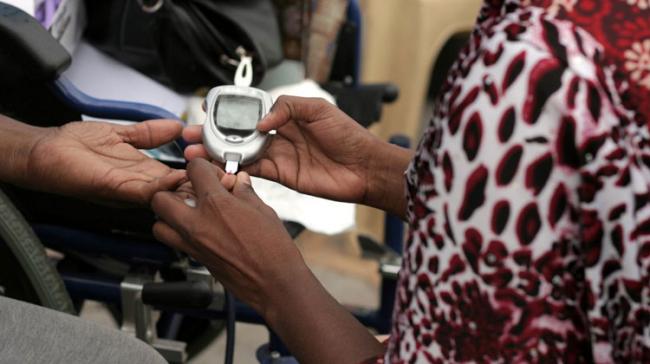Middle Aged in India Falling Prey to Diabetes, BP

Washington: Diabetes and hypertension are common among middle-aged and elderly people in India, home to more than a sixth of the world's population, researchers said on Monday.
Pascal Geldsetzer of Harvard University and colleagues looked at health data collected from 1,320,555 adults across India between 2012 and 2014, which included plasma glucose and blood pressure measurements.
Read Also: Why Proper Foot Care Is Important For Diabetics
Overall, the diabetes prevalence was 6.1 per cent for women and 6.5 per cent for men, and hypertension prevalence was 20 per cent for women and 24.5 per cent for men, with marked variation among states.
Household wealth and urban location were positively associated with both conditions, and the prevalence of diabetes and hypertension among middle-aged adults in the poorest households in rural areas was also high.
Specially, hypertension was higher among adults under 45 than previously estimated and was higher than in Central and Eastern Europe, the region previously estimated to have the highest rates for young adults.
The findings were published online in the US journal JAMA Internal Medicine. "Understanding how diabetes and hypertension prevalence varies within a country as large as India is essential for targeting of prevention, screening, and treatment services," Geldsetzer said in a Harvard press release.
Read Also: Loneliness Increases Diabetes Risk In Men: Study
In an accompanying editorial, Alka Kanaya of the University of California, San Francisco, wrote that the new report "is not only a stark warning of the looming crisis of cardiovascular diseases in India, but can also serve as a call to action for the country".
"India needs to focus on these two silent killers as well as other non-communicable diseases to reduce the burden of preventable premature morbidity and mortality," Ashish Awasthi, co-author of the new study and faculty at the Indian Institute of Public Health, elaborated in the press release. "If unchecked, we will see a lot more victims of these two diseases in next two decades," Awasthi added. (IANS)




